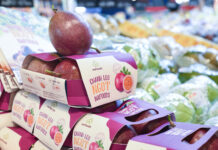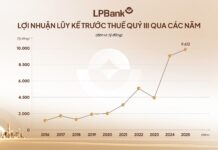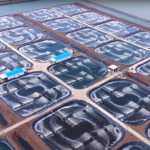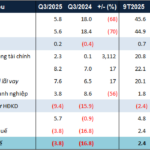ENORMOUS POTENTIAL
With a population of over 100 million people, Vietnam is considered a “land of opportunity” for F&B investment. The middle class in the S-shaped country is growing and the market is increasingly dominated by a new generation of young, dynamic, and tech-savvy Vietnamese who are driving growth in the industry.
According to a Euromonitor study published at the beginning of 2023, the value of the F&B market in Vietnam is expected to increase by 18% in 2023 compared to 2022, reaching a revenue milestone of approximately 720.3 trillion VND. Additionally, the F&B sector is one of the industries experiencing strong foreign investment. Many restaurants, as well as internationally renowned hotel brands such as Marriott, Hilton, Renaissance, Movenpick, and Melia, are expanding their presence in Vietnam, further highlighting the great opportunities for F&B businesses.
BALANCING WITH “SUSTAINABILITY” TREND
The F&B industry not only has enormous potential but also has a significant impact on the environment, biodiversity, and climate change. Conversely, climate change is also affecting the food supply in the F&B industry. Deloitte warns that every 1-degree Celsius increase in global average temperature could reduce wheat production by 6%, rice production by 3.2%, corn production by 7.4%, and soybean production by 3.1%.
Therefore, sustainable development has become an essential trend in the F&B industry. Especially after the Covid-19 pandemic, consumers are increasingly valuing products that are eco-friendly and sustainable. This poses a challenge for F&B businesses to find a balance between meeting the industry’s growing potential and ensuring sustainability.
To achieve this, businesses use plant-based, organic, sustainably farmed raw materials, and implement recycling and waste reduction measures in their production processes. Some businesses even build sustainable factories that meet industry standards.
For instance, Vinamilk – the highest-valued F&B brand in 2022 (according to Forbes) – continuously invests in green and sustainable technologies at its farm system and production plants.
Vinamilk’s manufacturing plant specifically uses NS BlueScope Vietnam’s AM coated steel to ensure durability for its farm and factory complex, as this type of steel has a four-layer matrix coating technology that can withstand harsh environments. Structures built to last over time are also one of the factors that help reduce the environmental impact of production activities.
Not only Vinamilk, but other major F&B players such as Coca Cola, Vissan, Masan, Heineken, Pepsi, etc. also use AM coated steel for their factories or in specific areas such as cleanrooms and cold storage.
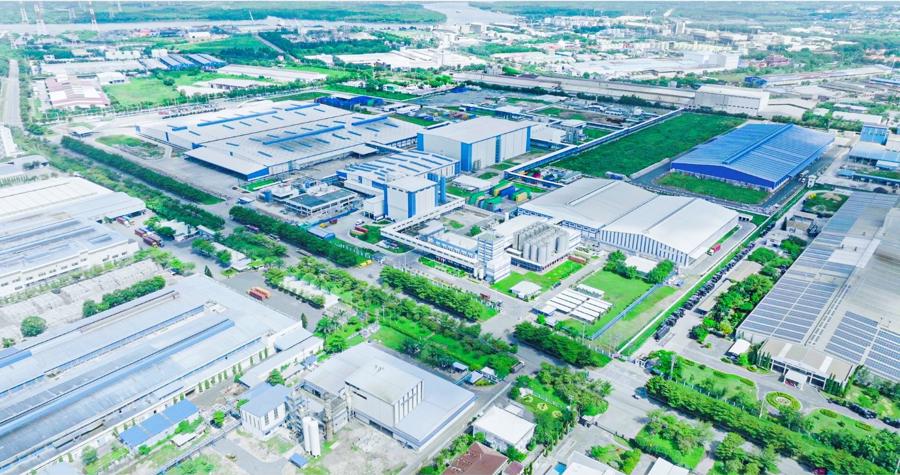
These examples are representative of F&B businesses that strike a balance between sustainable development and meeting the increasing demand of the market.
You may not know this, but NS BlueScope is the originator and the company that sets the coating technology standards used in the Vietnamese market. In 1993, when the Vietnamese market was still in its infancy with zinc coating technology, BlueScope introduced aluminum-zinc coated steel (AZ). Since 2019, NS BlueScope has introduced AM Activate technology, a four-layer matrix coating technology that is superior to AZ coating (which has only two layers).
The AM technology by BlueScope is the result of over 20 years of research and development with over 20 globally patented inventions. Without the complete combination of elements relating to the scopes of over 20 patents during the production process, the protective AM coating not only fails to form the four-layer matrix for superior corrosion resistance but also produces a more vulnerable corrosion-prone coating that is weaker in corrosion resistance starting from the production process itself.
AM coated steel is also applied as the materials for sandwich panels, making it the most suitable material for cleanrooms, cold storage rooms, roofs, and walls in F&B factories due to its outstanding corrosion resistance and the ability to inhibit the growth of bacteria.





